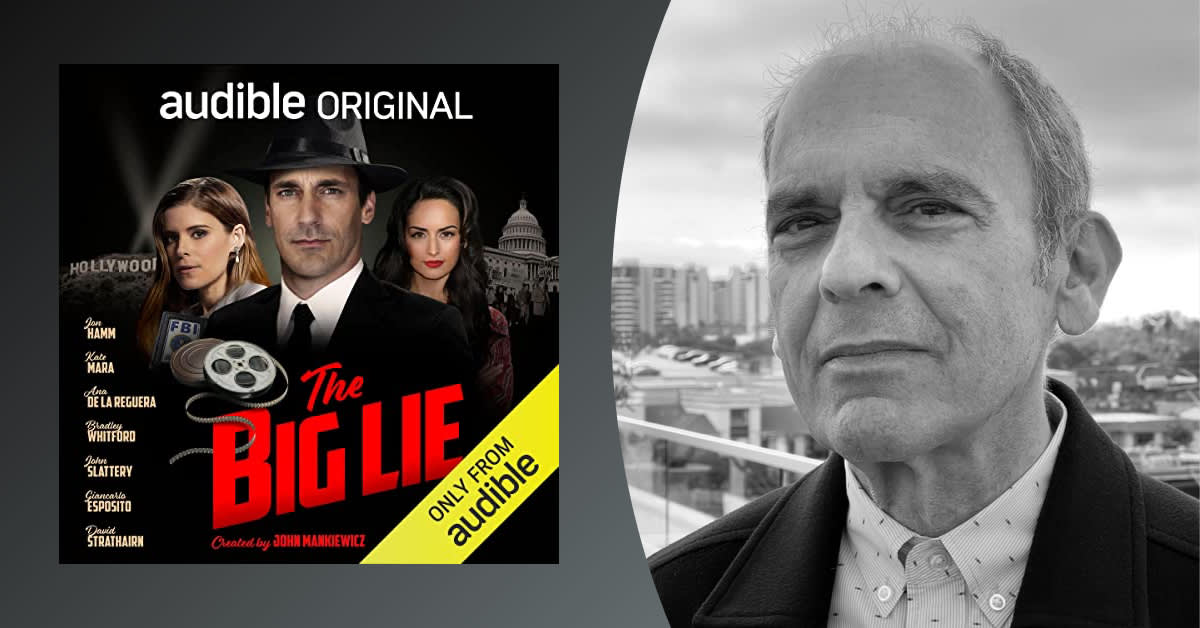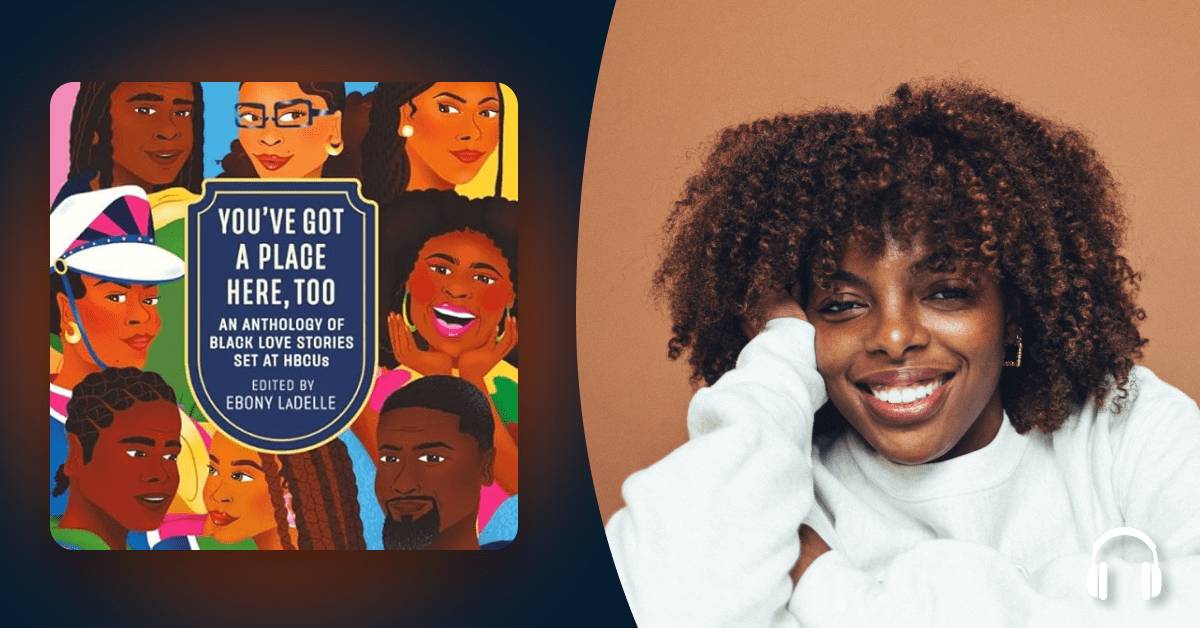is an immersive, seven-part audio drama about the making of Salt of the Earth—the only movie named to the “Hollywood Blacklist”—and the FBI agent (played by Jon Hamm) who tried to shut it down. Series creator and executive producer John Mankiewicz talks about all that went into the making of this tour de force of audio storytelling.
Audible: As a film and TV writer and producer, what moved you to create The Big Lie as an audio drama series rather than for the screen?
John Mankiewicz: It started with a phone call from an old friend, Dub Cornett, who told me that his friend Jason Ross had just started a company called Fresh Produce, and Fresh Produce had a deal with Audible. Dub wondered if I had anything that would be good for an audio format. This was in early 2021, deep into the pandemic—the world had shut down. Like many people, my sense of isolation had pushed me away from visual media toward the calming, more intimate experience of podcasts, contemporary ones at first, and then I discovered these great old BBC radio plays by Samuel Beckett and Tom Stoppard, which really pulled me in. When Jason told me what Fresh Produce was doing—immersive, detailed narrative fiction—I immediately thought of The Big Lie. Every writer’s got a story in his back pocket that he’s never going to give up on. The Big Lie was mine.
What do you think makes this story especially compelling to tell now?
Propaganda isn’t new, and has always been used to create division. In the 1950s, Communism was “the big lie,” and the United States government said people like Paul Jarrico, Michael Wilson, and Herb Biberman were inserting propaganda designed to persuade patriotic Americans that Communism was the way to go into movies like Salt of the Earth. Now—and I mean right now, at this moment—“the big lie” for some in this country is that we have an illegitimate President of the United States, and America is once again divided. To me, that resonance is fierce and timely. As Churchill once said, “Those that fail to learn from history are doomed to repeat it.”
How did the writing and production process compare with bringing a story to screen?
Each is a highly collaborative process, but I’d say that for a couple of reasons I feel like the writer has more control with audio. Ironically, the rebirth of audio as a story delivery system feels newer and less set in its ways than film and television, certainly at the executive level at the production company, Fresh Produce, and at Audible, the studio or network. I felt like no one was trying to fit this story into a box; everyone I dealt with was concerned only with telling the best possible version.





